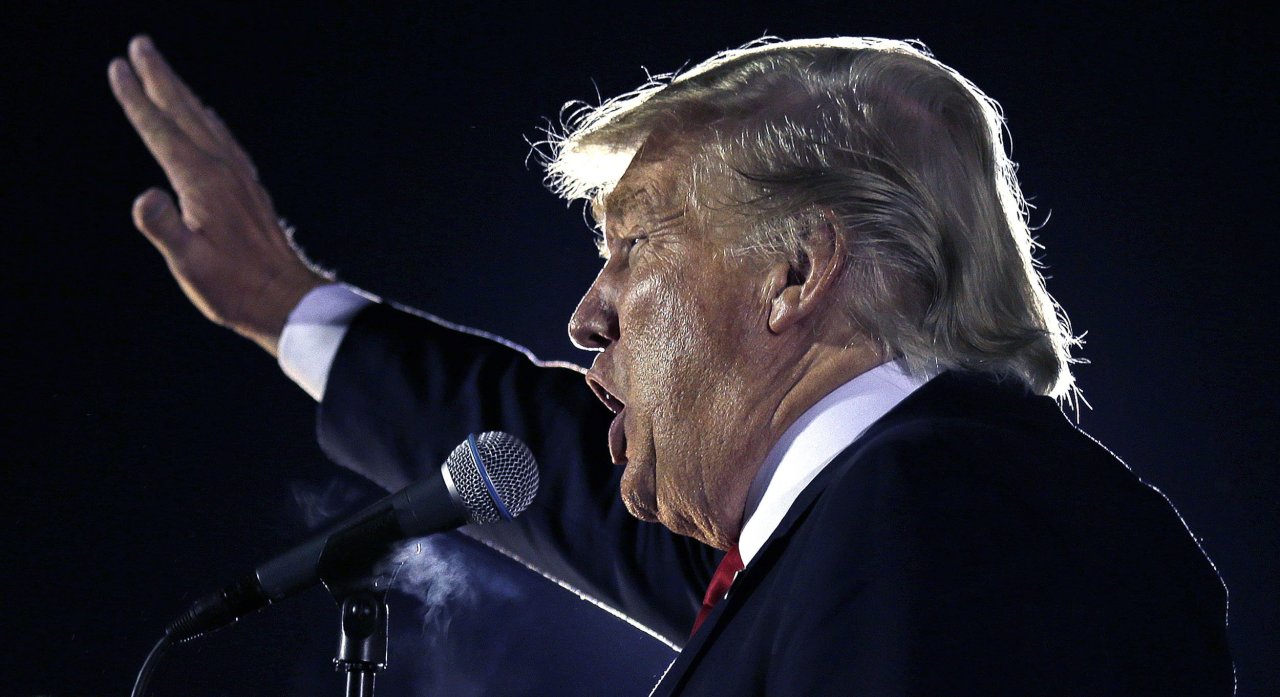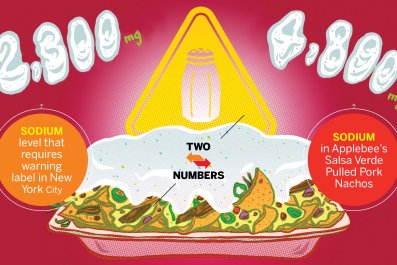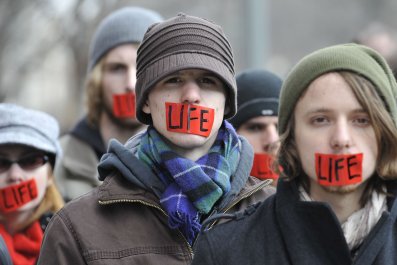The ugly American is back—and it's just possible he could soon be sitting in the White House. Donald Trump, the billionaire front-runner for the Republican presidential nomination, recently caused outrage around the world after he called for a "total and complete shutdown of Muslims entering the United States."
More than half a million people have signed a petition calling for Trump to be banned from the United Kingdom. His rhetoric could cost him heavily in the Middle East and Muslim countries such as Turkey and Azerbaijan, where he has extensive business interests. Hillary Clinton, Dick Cheney and Paul Ryan, the House speaker, have united to condemn him. J.K. Rowling, creator of Harry Potter, tweeted that Trump was worse than Lord Voldemort, Harry's evil antagonist.
"This was not a simple right-wing statement but something way beyond the pale," says H.A. Hellyer, associate fellow of the Royal United Services Institute and author of Muslims of Europe: The 'Other' Europeans. "This is a frontal assault on more than a billion people. It has gone viral and he won't stop."
None of this seems to be affecting Trump's domestic base. In fact, the more offensive his statements, the better his poll numbers. A poll from NBC News and The Wall Street Journal showed that 42 percent of Republican voters supported the proposal, with 39 percent opposing it. "He thinks he is right, it is increasing his popularity, and a good swath of people in the Republican Party think like this," says Hellyer.
All this is causing alarm in Europe's capitals. "Trump hits every negative stereotype of Americans that Europeans love to hate," says Robbie Gramer, associate director of the Transatlantic Security Initiative at the Atlantic Council. "He is superficial and un-nuanced. In Germany, they are deeply suspicious of this kind of big money. In France, what he says may be illegal. He doesn't have a deep or even a coherent foreign policy. In the past, politicians were risk-averse. Trump shows that you can go out and make up facts and people will believe them."
The rise of Trump, says Gramer, shows the power of the politics of fear, "of terrorism, the migrant crisis, Russia and the Middle East. Americans don't appreciate the impact this is having in Europe. Our European allies pay attention to the polls. He is making headlines, and the primaries do alter perceptions of the United States."
Beyond the populist rhetoric, Trump is playing an extremely dangerous game, analysts say. "He has inserted a kind of discourse into public debate that was once radical but is now mainstream," says Hellyer. "Bigotry has become normalized; this kind of language has become normalized."
Hellyer warns that partisan rhetoric can lead to violence. "The impact is very dangerous. You can see it on the physical lives of American Muslims, an increase in hate crimes, assaults and arson attacks. Opinion polls show a deep correlation between nasty feelings about Islam and similar feelings about Muslims. A politician who made similar statements against Jewish people would be regarded as a pariah in Europe; he would be seen as making an assault on all Europeans."
There is one place Trump's anti-Muslim views will likely be welcomed: Raqqa, the capital of the self-proclaimed Islamic State. "One of the great dangers of these kinds of statements is that they tend to validate Al-Qaeda and ISIS," says Anthony Cordesman, a defense and security expert at the Centre for Strategic and International Studies. "They seem to show that the U.S. is anti-Muslim and anti-Islam. If ISIS wanted to invent an ideal candidate, it would be Donald Trump. Trump is effectively supporting violent Islamic extremism with populist, partisan political extremism."
Trump stands for the politics of grievance, hatred and trolling, says Haras Rafiq, managing director of the Quilliam Foundation, a London-based counterextremism think tank. Such tactics play straight into the hands of extremists like the militant group ISIS (aka ISIL). "ISIL are clear that their tactics are to take people out of the gray zone, to a clear binary position where they claim that the West does not want Muslims, hates Muslims, will never treat Muslims equally, so come and join us. Now ISIL can say, 'We told you, here is the next potential leader of free world, he says he doesn't want you.' That is a very dangerous situation for all us."
Europe's recent history clearly shows the dangers of not taking marginal extremists seriously, says Rafiq. "We have seen this before. Some people are dismissing Trump as a clown candidate, but look at Europe after the First World War. People then dismissed Hitler as a clown candidate."
It's a long path from the stump to the White House, but what if Trump won both the nomination and the presidency? "That would change perceptions very quickly," says Cordesman. "But no one would know until he was inaugurated how many of his campaign statements were posturing and how many were real."
Trump is hard to read because he is such a one-man band. Candidates usually build a team of advisers and veterans. Not Trump. "He does not have a clear group of supporters, with positions of their own that can help define his policies," says Cordesman. "We have no idea what a Trump administration would actually be like, because he would have to go from posturing over what he was against to actually running a country.
"Is he going to cut defense spending or increase it? Who knows? Sometimes he calls for more bombing in Syria, sometimes not. It is not clear that he would weaken U.S. security ties, although he might provoke Russia or Islamic State," Cordesman says.
Trump makes no attempt to be consistent, he continues. "If you look at Trump on a day-to-day basis, he is opportunistic. He knows his audience and basically wants to rail against the conventional power structure. He does not care about consistency."
Trump may fade away, but far deeper problems remain, warns Quilliam's Rafiq. Islamists, the far right and the far left all disdain modern liberal democracy and will work to undermine it. "We have not got to grips with the symbiotic relationship between Islamism and far-right hatred, and the regressive left that is prepared to excuse Islamism. Could you imagine the nightmare if in the next five years we wake up and have Trump as president, Jeremy Corbyn as [U.K.] prime minister, Le Pen in France and Putin in Russia? This is the net result of comments like [Trump's]."






















